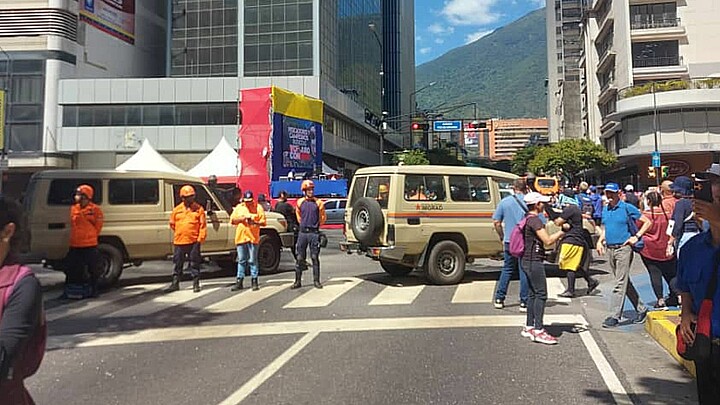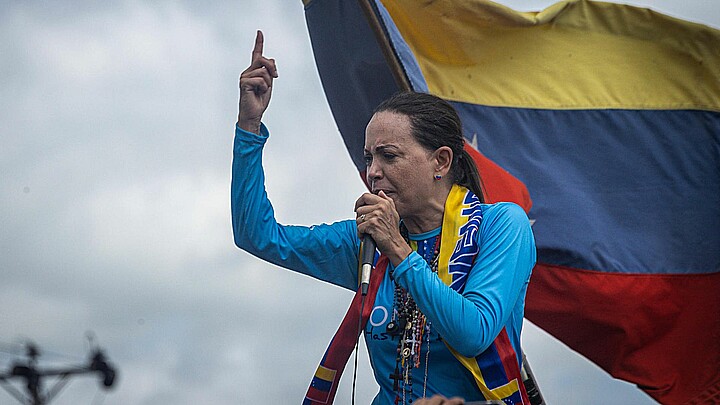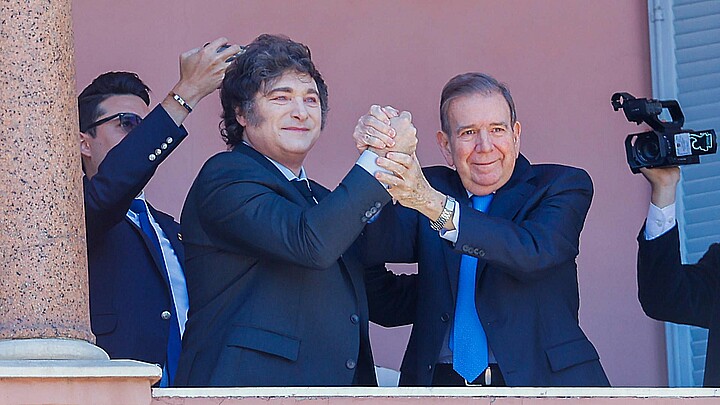Politics
Chavista dictatorship approves law imposing prison and political disqualification for sending "prohibited messages"
Venezuelan opposition and experts described the bill as "the final blow of the dictatorship" of Nicolás Maduro against freedoms.
April 4, 2024 4:06pm
Updated: April 5, 2024 8:36pm
The National Assembly of Venezuela has approved a “bill against fascism, neo-fascism and similar expressions,” which imposes fines, imprisonment, and disqualification from holding political office and for sending “prohibited messages” about opposition to the Nicolás Maduro regime.
Venezuelan opposition members and experts have described the new law, approved Wednesday, April 3, as the “final blow of the dictatorship” against the democracy movement.
Vice President Delcy Rodríguez presented the bill to the Venezuelan Assembly, which approved the new legislation in its first meeting, opening a new door for the regime total control of freedom of expression.
Still, the communist Maduro regime justified the new law under the auspices of combatting the specter of fascism purportedly continuing to creep across the South American country.
“Stopping fascism in the world is a task that cannot be postponed for the good of humanity, because it not only manifests itself in expressions of hate, violence and death, but also in forms of economic fascism, such as the criminal blockade imposed against Venezuela,” he expressed. Rodriguez.
The new legislative act has 30 articles and aims to “establish the means and mechanisms to preserve peaceful coexistence and public tranquility,” as well as “protect Venezuelan society from the emergence of any expression of a fascist, neo-fascist order or similar nature.” added the Chavista representative.
In the most controversial articles it is stated that “‘neoliberal’ and ‘conservative’ thinking is prohibited throughout the country.”
It also empowers the government to engage in total censorship of social networks for those who damage the image of the government and denies the right to hold meetings and demonstrations that the regime defines as “fascist.”
As a result of the new legislation, the Maduro dictatorship will create a high commission against “fascism” led by Chavista militants to review prohibited messaging.
The law’s description of “prohibited messages,” refers to those who promote “violence as a method of political action, reproduce the culture of hate, denigrate democracy and its institutions, promote the suspension of rights and guarantees and exalt principles, facts, symbols and methods of fascism.”
The Public Ministry will be in charge of determining what messages and acts can be interpreted within this framework.
Those who fail to comply with any of the 30 articles will have a sentence of between six to 12 years in prison.
The upcoming July 28 elections in Venezuela have attracted worldwide attention due to the ongoing repression against opposition leaders, human rights activists and journalists in Venezuela.
Opposition leader María Corina Machado asked Norway, a mediating country in the negotiations between the regime and the opposition, to maximize its “diplomatic resources” to guarantee compliance with the Barbados Agreement, which promised to hold open and democratic elections and give the opposition a fair opportunity to register their candidates.
Machado has repeatedly accused Maduro of only allowing the registration of candidates who do not pose a threat to his Chavista regime.
Since then, Maduro has also been criticized for preventing millions of voters outside the country from voting remotely by failing to install voting machines in Venezuelan consulates across the Western Hemisphere.











